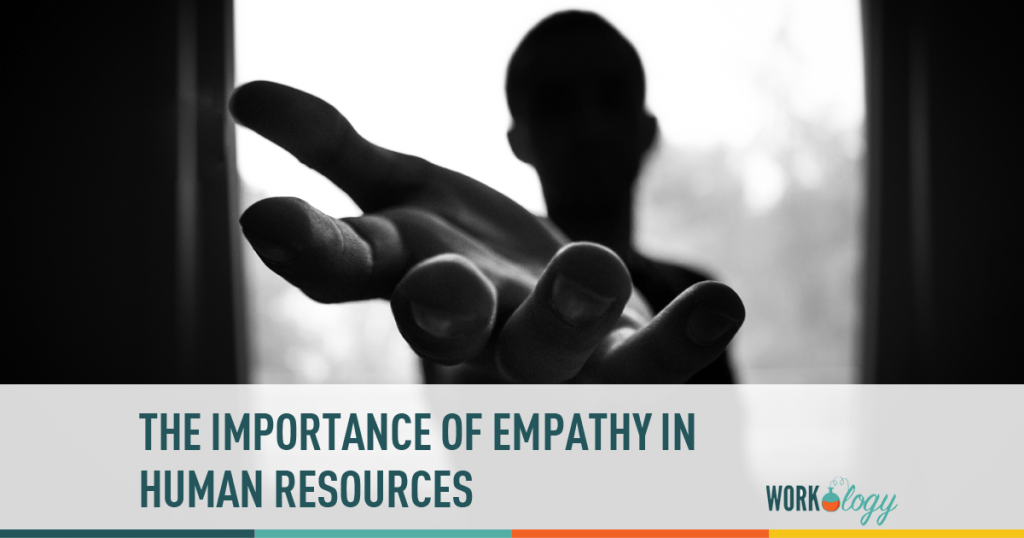There’s a problem brewing in the world of HR, and it has to do with the public perception of our profession.
You’ve been around long enough to be familiar with some of these grumblings: HR people always take the company’s side regardless of the matter, we’re too concerned with policies to actually solve real problems, or that we simply lack empathy. And these are just a few of the many reasons employees often dislike HR people. It’s time to take back our profession, and show our teammates that HR people are on their side.
The Importance Of Empathy In HR
To do this, we must rethink how we approach HR by focusing on a very basic human emotion that’s gotten lost in the shuffle: empathy.
Develop A New Mantra
A lot of companies draw inspiration and motivation from a mission statement — a driving principle that’s meant to remind employees why they come to work everyday. HR is a service-based function, and while that service is often provided to the company, it shouldn’t be at the expense of its employees’ needs.
Sure, you’ll be the gatekeeper at times, and you’ve likely had to fire someone, but doing these things without regard for your employees’ feelings is the biggest reason they may dislike you.
Take a cue from The Ritz-Carlton, which has a motto that sets the tone for how all employees should treat each other: “We are Ladies and Gentlemen serving Ladies and Gentlemen.” Its essence? That empathy is core to interacting with others, be it customers or employees. Whether you’re the chef, the cook, or the butler, developing empathy comes from putting yourself in another’s shoes. So first and foremost, it’s time to put the ‘human’ back in Human Resources.
Start by thinking about a recent conversation you had with an employee: were you empathetic to their situation? You may be surprised by your own answers.
Listen First, Always
Good leaders know that listening is one of the most important skills they could practice. But it’s not always easy, especially if you’re tasked with communicating your company’s policies and needs above all else. Remember The Ritz-Carlton’s approach: you’re a servant to both the company and the employee. Here are some ways to become a better, more empathetic, listener:
Create a Distraction-Free Space for Conversation
Harvard Business Review recommends getting rid of distractions — like cell phones, and even that spreadsheet on your computer screen. So turn off your devices, close your laptop, and show your teammate that you’re open to hearing what they have to say. Active listening is an important skill to develop; here are some ways to practice being a better (active) listener.
Validate Their Feelings
Good listeners ask clarifying questions and don’t just jump to conclusions. When an employee makes a statement, repeat it back to them saying something like, “I’m hearing that you’re frustrated with how your manager is handling this situation. Am I interpreting that accurately?” Sometimes, this also means apologizing for bad leadership, if it’s appropriate.
Establish a Course of Action
Listening isn’t a passive skill, so don’t walk away from the conversation without any clear takeaways. Summarize what you discussed, and determine any follow up. Maybe it’s sharing the employees’ concerns with their manager, or coming up with a plan to help them course correct. Perhaps it’s just an acknowledgement from both parties that you’ll reflect and reconvene in a few days’ time.
Listening is hard, but telling an employee he’s fired or that she’s being placed on performance review? Well, that’s never fun. That said, there’s still an empathetic way to talk to an employee about issues on which you know you’ll have to take the company’s side.
Delivering Bad News
As an HR professional, your job is often associated with policing. But just like a dedicated police officer, you’re not in the business of being a jerk for the sake of being a jerk. When people break the rules, show poor performance, or aren’t clear on company policies, it’s your responsibility to course correct them, while still being their champion.
Here are a few tips for approaching employees when the news isn’t good:
Explain How You Came to Your Conclusion
Typically, companies take disciplinary action after much deliberation. And while you’re not responsible for giving the employee a play-by-play of what happened behind the scenes, you will want to explain how you came to the decision. You may be surprised that employees are more accepting of an outcome when they understand the process that led to it and feel that the decision is, above all, “fair.”
Don’t Beat Around the Bush, But Show Compassion
When conveying the news, don’t sugarcoat or ramble: rather, tell them clearly and succinctly what is happening, and why. But always remember your audience: acknowledge feelings of fear, disappointment, and uncertainty, and make it clear that you hear them. Also, remember to remain calm so as not to rely on your ego during tense conversations; the less anxious you are, the more available and reasonable you’ll appear to your teammates.
Follow Up
Getting hit with bad news is often stressful and expected but much of the ‘work’ comes after the delivery. Never, ever, go radio silent after sharing bad news with an employee. Make yourself available to talk after and emphasize that you’re there to support them, in whatever way they need. Having a feedback loop is critical for maintaining employee morale, and frankly, retaining your best employees.
Bringing empathy into your day-to-day job is one of the most important ways we as HR professionals can turn around any negative emotions our colleagues have about our jobs. By showing more compassion for our colleagues, we’ll help not only our companies, but our employees, too.
Photo credit: Ed Schipul









